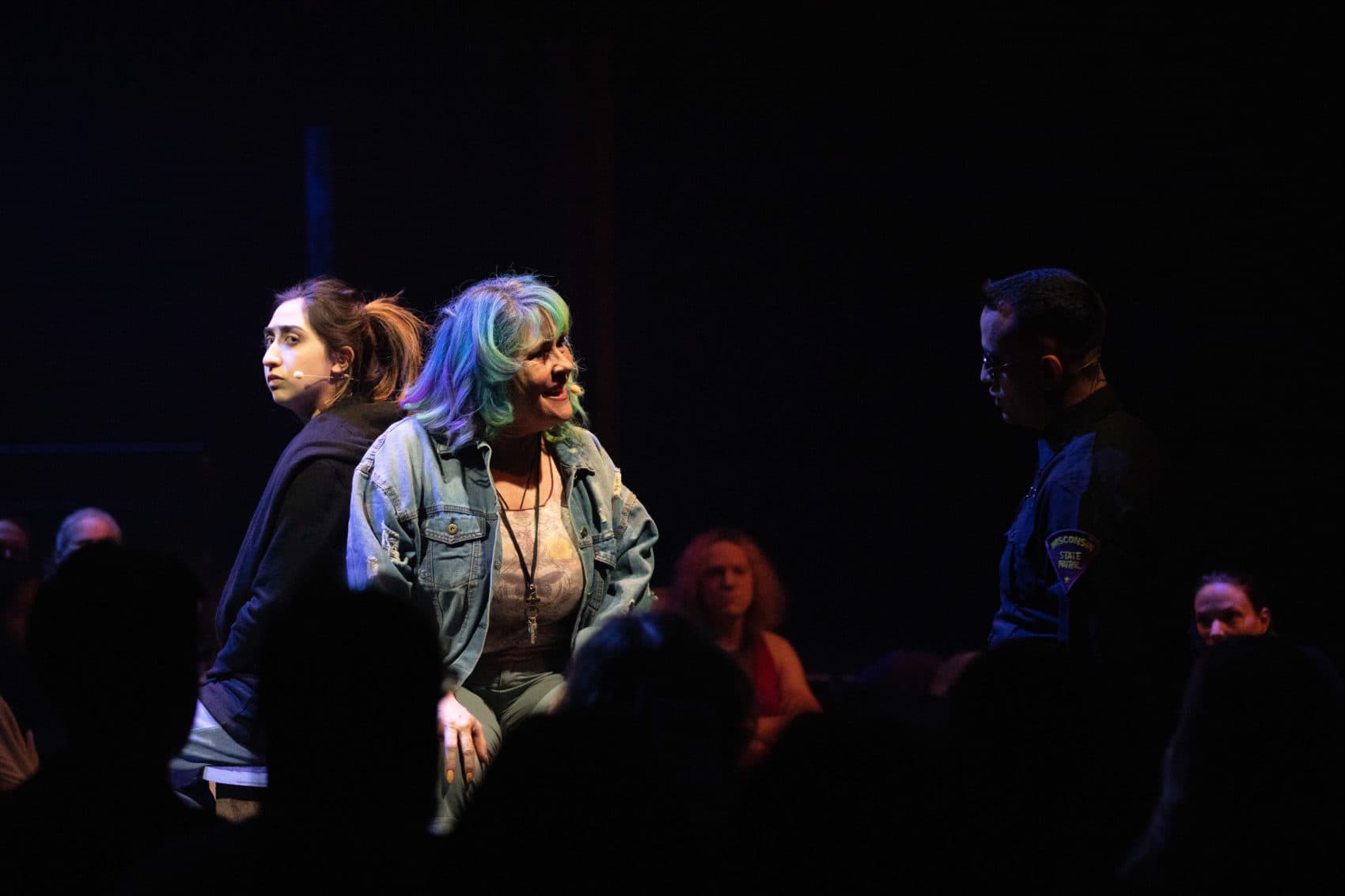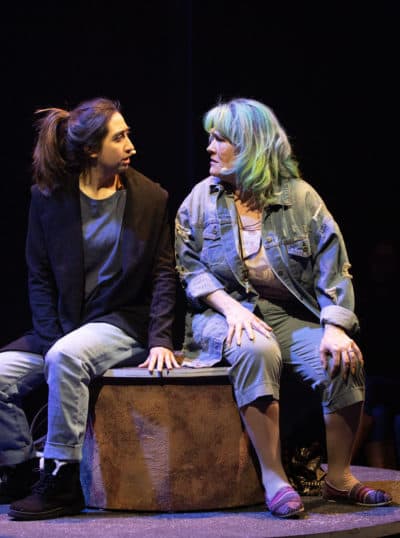Advertisement
Review
'Miss You Like Hell' Takes Us On A Road Trip Of Political Concerns

“Miss You Like Hell” begins with a spirited affirmation. A middle-aged woman named Beatriz proclaims that she is a lioness, a warrior. She raises her hands triumphantly and chants, “I call upon the feminine divine. Yo, back me up bitches.”
That’s quite the summons, and it’s hard at first not to think, “Sure, sister. I got your back.” What’s not to like about an aging mother who drives a big old truck named Diana, dances a mean salsa and swears a streak as blue as the dye in her multicolored hair? In fact, the musical itself just begs to be liked, perhaps too hard. With book and lyrics by Quiara Alegría Hudes and music and lyrics by Erin McKeown, “Miss You Like Hell” earnestly tells the story of Beatriz, the goddess-worshiping bohemian, and her estranged daughter Olivia, a surly teenager in a T-shirt.

When Beatriz takes her daughter on a free-wheeling road trip, they meet all sorts of characters and calamities along the way, but they keep on trucking, trying to bridge the huge gap in their relationship as they cross the country. But it’s not all kiss-and-make-up on the road. Beatriz is undocumented, and she could be deported to Mexico after an upcoming immigration hearing in Los Angeles. From the start, it’s clear where this trip is ending.
This sounds like an Odyssey for our age: a mother and child reunion with cheap motels, busted tail lights and a foreboding sense of danger. But the musical is a bumpy ride. (I saw the last preview before opening night.) The production at Oberon, presented by Company One Theatre in collaboration with the American Repertory Theater, underscores the sentimentality and randomness of the book. Secondary characters appear out of nowhere, and the episodic adventures are not tied together fluidly. However, the two central characters are intrinsically sympathetic — especially in today’s toxic political climate.
The play is set in "2014. Late Obama Years," but the creative team of Hudes (who won a Pulitzer for “Water by the Spoonful” and a Tony for “In the Heights”) and McKeown began writing the musical in 2011. It's actually an adaptation of Hudes' 2009 play, "26 Miles."
"Miss You Like Hell" is shrouded by the fact that Beatriz may be torn from the daughter she is just getting to know. The two were separated four years earlier when Beatriz lost a contentious custody battle. Now she says she is rescuing Olivia, who threatened suicide on her confessional blog. But there's a twist: She needs her daughter to stand in as a character witness at her upcoming immigration hearing, and Olivia realizes that Beatriz is not simply showing a sudden outpouring of maternal love. Beatriz is both a broken-hearted mother and a schemer, and Johanna Carlisle-Zepeda shows both sides, seguing from concern and affection to sarcasm and rage. As Olivia, Krystal Hernandez wears her animosity and angst on her slumped shoulders. Beatriz calls her bookish daughter a “zombie.” Olivia describes her mother as “the Michelangelo of self-interest.” Carlisle-Zepeda’s Beatriz is a flighty free spirit with a spring in her steps, and Hernandez’ Olivia sings the alphabet backward when she has panic attacks. Their scenes and duets are engaging, as they tug and pull at each other and try to reconcile.

By design, the secondary characters are an amalgamation of the country, including an elderly gay couple whose goal is to get married in all 50 states, a junior park ranger at Yellowstone National Park who just happens to read Olivia’s blog, and a Mexican tamale vendor who pops up out of nowhere in South Dakota. They are all nice, nice, nice, as if answering Beatriz’s opening plea to back her up. Adrian Peguero manages to sing the cloying song “Tamales” with heart, but it sounds like a tune that didn’t make the cut in “Waitress.” Raijene Murchison is endearing as the junior park ranger, even if the character is a device to show that immigrants appreciate the splendor of the national park system (now partly shuttered by the government shutdown).
McKeown is an artist known for blending musical styles and defying categorization. While the score is a pastiche of the American musical catalog, none of the songs are memorable and many border on precious. A rah-rah chorus meant to look like America cheers on the travelers, with advice like “Look for home,” “You can do this,” and sometimes just plain “Ooh ahh.”
In director Summer L. Williams’ production, the chorus marches around in circles, like Up with People without the costumes and the choreography. At Oberon, most of the action unfolds on a small, circular playing space surrounded by café seating. The transitions between scenes are creaky, and Erik D. Diaz’ set is little more than a few road signs and two wooden wheels you might see by the side of a highway. The staging is all over the place and doesn’t show a clear trajectory in time and place.
In the end, though, “Miss You Like Hell” humanizes a story that is all-too common. Despite my enormous frustration with the side trips and sugar, the final song got me at last, crystallizing the trauma of our troubled times. The musical has been reworked several times, and the creative team should consider another tune-up. The family vacation may be over, but the journey for the dynamic mother-daughter pair has just begun.
“Miss You Like Hell” runs at Oberon in Cambridge through Jan. 27.
Patti Hartigan is an award-winning journalist who was a longtime arts reporter and drama critic for The Boston Globe. She is working on a biography of playwright August Wilson.